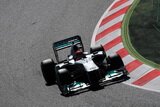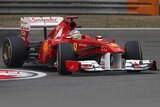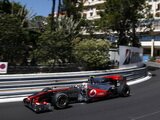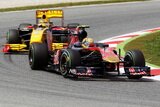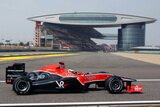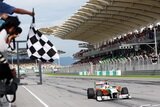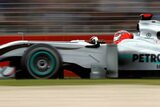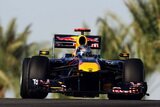France-based Amaury Sport Organisation, in charge of the 6,000km rally, said in a statement they had been advised by the French government to cancel the race which was due to begin on Saturday from Lisbon.
They said direct threats had also been made against the event by "terrorist organisations".
The race, originally known as Paris-Dakar, has been held uninterrupted since 1979 although stages have been cancelled in the past for safety reasons.
"The organisers of the Dakar have taken the decision to cancel the 2008 edition of the rally scheduled from the 5th to the 20th of January between Lisbon and Senegal's capital," Amaury Sport said.
"Based on the current international political tension and the murder of four French tourists ... but also mainly the direct threats launched directly against the race by terrorist organisations, no other decision but the cancellation of the sporting event could be taken."
France warned the Dakar organisers on Thursday against holding stages in Mauritania because it said "the terrorist risk" cannot be ruled out.
Three attackers, who authorities suspect were linked to al Qaeda, gunned down four French tourists and injured a fifth as they enjoyed a Christmas Eve picnic by the roadside in the south of the country, near the border with Senegal.
Gunmen killed three soldiers three days later in the remote and sparsely populated north of the country, bordering Algeria and Morocco's breakaway territory of Western Sahara.
In a statement published on several Islamist Web sites on December 29th, al Qaeda's north African wing denounced the race as "neo-colonialist" and accused the Mauritanian government of collaborating with "crusaders, apostates, infidels."
France's Sports Minister, Bernard Laporte, said the rally's cancellation would have "disastrous economic consequences" for countries where the rally passed through but added that security issues would have to come first.
"After a point you can't just talk about economics and you have to talk first about security," he said during a visit to Guadeloupe.
A spokesman for Mauritania's National Tourism Office, Hamady Samb Ba, played down France's concerns however.
"It is a surprise," he said, before the race was cancelled." "It would deal a serious blow to the image of the country. Their concerns are unfounded."
Most African officials were also quick to criticize the decision, fearing the move will tarnish even more the image of the world's poorest continent and deprive it of much-needed foreign investment from the passage of hundreds of racing vehicles.
"The cancellation of the rally is not only a great loss for Senegal, but for all the countries crossed by the race," said Mamadou Dia, a spokesman for Senegal's Sports Ministry.
"There is an enormous loss of hundreds of millions of francs CFA," said Moustapha Kane, permanent secretary of the hoteliers association of Senegal. "With regard to the promotion of the image of the destination, it is deplorable that the organising committee has taken this decision."
The rally, one of the toughest and most dangerous challenges in motorsport, had been due to arrive in Mauritania on January 11th with eight stages in that country until January 19th.
Organisers cancelled two stages in Mali last year after French security services said participants risked being kidnapped or ambushed by Algerian rebels.
"The decision was taken for good reasons but it's very annoying," said Andre Dessoud, who heads the Nissan team.
"We worked for months and invested a lot of money. I don't have a clue about what we are going to do. We have lost all the petrol we have sent ahead of the race and we'll have to call back the lorries which carried the cars to Lisbon."
Some 570 teams had registered for the 30th edition of the event with Mitsubishi seeking their eighth successive win in the car category.
Competitors included France's former downhill skiers Luc Alphand and Carolle Montillet, Olympic and world boxing champion Brahim Asloum and former Formula One drivers Tiago Monteiro of Portugal and Japan's Ukyo Katayama.
"This is a sad moment for the teams," said Portuguese driver Carlos Sousa, who has participated in eleven Dakar rallies.
eurosport
Comments:




